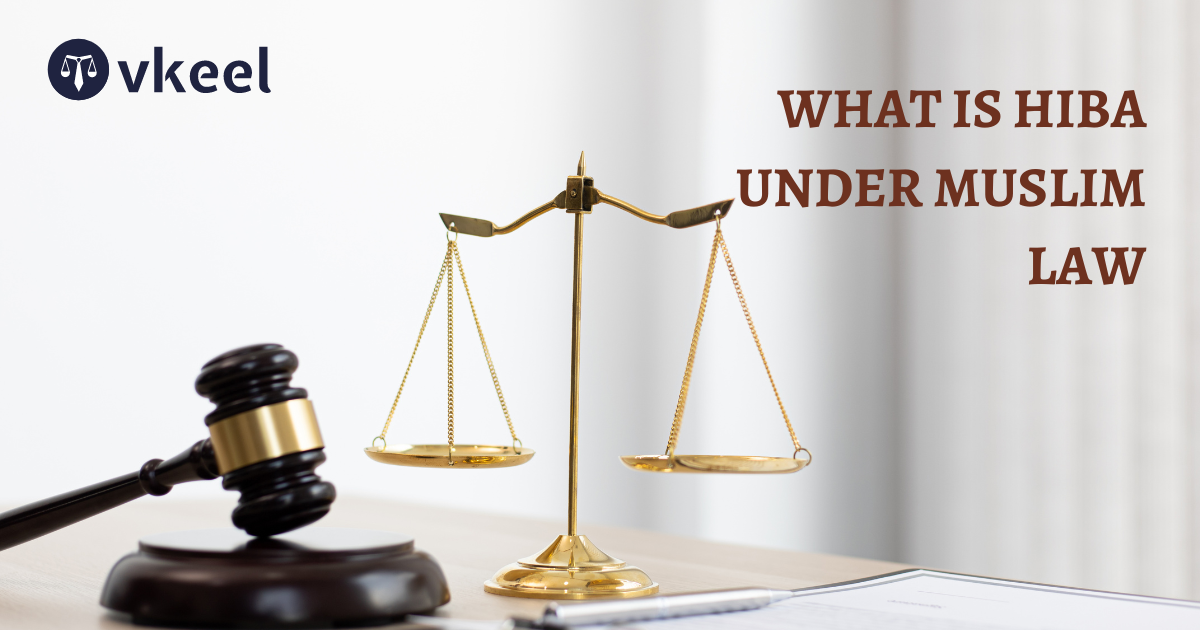What is Hiba under Muslim Law
By Himanshu Kumar
Table of Contents
Introduction
The word ‘hiba’ , literally means the donation of a thing from which the donee may derive a benefit , the transfer must be immediate and complete (Tamlik-ul-ain) or the most essential ingredient of hiba is the declaration “I have given”. Since Muslim Law views the law of the gift as a part of the law of contract , there must be an offer (Iijab) and an acceptance (qabul) and delivery of possession (qabza).
Under Muslim Law , a person is allowed to lawfully make a gift of his property to another during his life time or he may transfer it by way of will which will take effect after his death. The first is called a disposition inter vivos and the latter a testamentary disposition. A disposition inter vivos is unfettered as to quantum , a testamentary disposition is limited to 1/3 of the net estate.
Muslim Law permits a man to give away the whole of his property during his lifetime , whereas only 1/3 of it can be bequeathed by will. A hiba or simple gift inter vivos(between living persons) literally means”the donation of a thing from which the donee may derive benefit”. In this technical sense, it is defined as “unconditional transfer of property , made immediately and without any exchange or consideration, by one person to another and accepted by or on behalf of the latter.
According to Mulla , “Gift is a transfer of property, made immediately , and without any exchange , by one person to the other and accepted by or on behalf of the latter. In the realm of Islamic jurisprudence, Hiba holds significant importance, serving as a legal concept that pertains to the voluntary transfer of property or possessions from one individual to another, without any exchange of consideration. This practice has deep roots in Islamic teachings and traditions, embodying principles of generosity, altruism, and compassion.
Definition and Meaning of Hiba
Hiba, derived from the Arabic word “hubb,” which means “gift” or “donation,” refers to the act of bestowing a gift or endowment by one person (donor) to another (donee) without any reciprocal obligation or compensation. It is essentially an irrevocable transfer of ownership, wherein the donor relinquishes their right over the property or asset in favor of the donee. Hiba can encompass a wide range of assets, including money, real estate, movable property, or any other form of wealth.
To truly grasp the essence of Hiba, one must look beyond its legalistic definition and delve into its emotional significance. Imagine a father gifting his daughter her first piece of jewelry on her wedding day, not as a transaction, but as a symbol of his enduring love and support. Picture a neighbor offering a portion of their harvest to a struggling family, not for profit, but as a gesture of solidarity in times of need. These acts of Hiba embody the essence of human connection, fostering bonds of trust, empathy, and reciprocity within communities.
Essentials of Hiba
Following are the essentials of hiba under muslim law.
Offer and Acceptance
Like any contract , Hiba requires an offer by the donor(donor’s declaration to gift the property) and acceptance by the donee (donee’s acceptance of the gift).
Capacity of Donor and Donee
Both the donor and the donee must be competent and legally capable of entering into the gift transaction. This includes being of sound mind and having the legal capacity to own and transfer property.
Clear Intention
The donor must have a clear intention to gift the property without any expectation of return. The intention gift the property without any expectation of return. The intention to gift (or Hiba-bil-lwaz, where there is a return involved) must be explicit and unambiguous.
Immediate Transfer of Ownership
Upon acceptance by the donee , the ownership of the gifted property must be transferred immediately and permanently to the donee. The donor should relinquish all rights and control over the gifted property.
Acceptance
The acceptance of the gift by the donee must be expressed during the donor’s lifetime. The donee can accept the gift verbally or in writing, and silence may also sometimes constitute acceptance based on circumstances.
Valid Subject Matter
The property being gifted must be a legal and valid subject matter of gift under Islamic law. It should be owned by the donor and must be capable of being transferred.
Benefit to Donee
The gift should be for the benefit and use of the donee. The donor should not impose any conditions that go against the principles of sharia or restrict the donee’s rights over the gifted property.
Characteristics of Hiba
Several key characteristics define Hiba under Muslim law:
Voluntary Nature
Hiba is an act of voluntary benevolence on the part of the donor. It is not enforced by any legal obligation but is rather motivated by the desire to bestow a gift upon another person out of kindness, love, or goodwill.
Immediate Transfer of Ownership
Upon acceptance by the donee, ownership of the gifted property is transferred immediately and irrevocably to the donee. Unlike a sale or exchange, Hiba does not involve any delay or condition for the transfer of ownership.
No Consideration Required
Unlike a contract, where consideration (something of value exchanged between parties) is necessary for its validity, Hiba does not require any consideration. It is a gratuitous transfer of property without any expectation of receiving something in return.
Revocable in Certain Circumstances
While Hiba is generally considered irrevocable once completed, there are exceptions under Muslim law where it may be revoked, such as if the donor becomes insolvent or if the gift is conditional and the condition remains unfulfilled.
Legal Formalities
Although not mandatory, it is recommended for Hiba to be formalized through a written document signed by the donor and attested by witnesses. This helps in avoiding disputes and ensuring clarity regarding the terms of the gift.
Case Law and Amendments
In recent years, several notable case laws and legislative amendments have influenced the application of Hiba under Muslim law:
Shayara Bano v. Union of India (2017)
This landmark case, relating to the practice of triple talaq (instant divorce) among Muslims, sparked a broader discourse on gender justice and women’s rights within Muslim personal laws. While not directly related to Hiba, the case underscored the need for reforms and progressive interpretations within Islamic jurisprudence, including matters concerning property rights and inheritance.
Amendments to Muslim Personal Laws
Various countries with Muslim-majority populations have undertaken legislative reforms aimed at modernizing and codifying personal laws, including those related to Hiba. For instance, reforms in countries like India, Pakistan, and Bangladesh have sought to address issues of gender equality, inheritance rights, and the legal validity of Hiba under contemporary societal norms.
Recognition of Electronic Documentation
With the advent of digital technology, there has been a growing acceptance of electronic documentation for legal transactions, including gifts such as Hiba. Many jurisdictions have adapted their laws to recognize electronic signatures and documents, thereby facilitating the formalization of Hiba through digital means.
Judicial Interpretations on Hiba Conditions
Courts have been called upon to interpret the conditions and terms attached to Hiba in specific cases. Recent rulings have emphasized the importance of upholding the intentions of the donor while ensuring fairness and equity for all parties involved. Courts have also provided guidance on resolving disputes arising from conditional gifts, balancing the rights of the donor and the donee.
Emphasis on Social Justice
In light of evolving societal norms and principles of social justice, there is a growing emphasis on using Hiba as a means to address socio-economic disparities and support marginalized communities. Efforts are being made to promote philanthropic giving through Hiba for charitable purposes, welfare initiatives, and poverty alleviation programs.
Conclusion
Hiba, as a concept under Muslim law, embodies the values of generosity, compassion, and altruism. It serves as a means for individuals to express their benevolence and support for others without expecting anything in return. While rooted in tradition, Hiba continues to evolve in response to contemporary legal, social, and technological developments. Recent case laws and legislative reforms reflect a growing recognition of the need for equitable and inclusive practices within Islamic jurisprudence, ensuring that Hiba remains relevant and meaningful in the modern world. As societies progress, the principles of Hiba will continue to serve as a beacon of goodwill and solidarity, fostering harmony and mutual support among individuals and communities.
Disclaimer:
The information provided in the article is for general informational purposes only, and is not intended to constitute legal advice or to be relied upon as a substitute for legal advice. Furthermore, any information contained in the article is not guaranteed to be current, complete or accurate. If you require legal advice or representation, you should contact an attorney or law firm directly. We are not responsible for any damages resulting from any reliance on the content of this website.










